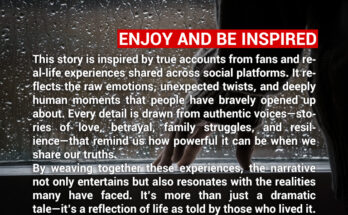I always believed I was one of the lucky ones. Adopted as a baby by a loving couple, I grew up in a home filled with warmth, bedtime stories, and pillow forts. My adoptive parents, Brian and Kayla, later adopted two more children, and we became a tight-knit trio. I never questioned my place in the family. But when I turned 25, I received a letter that changed everything—my birth mother, whom I had never met, had passed away and left me her entire estate: $187,000 and a house. I felt stunned, grateful, and curious about the woman I never knew.
I flew out for the funeral, hoping to honor her memory and maybe find closure. The service was quiet, attended by a few distant relatives who barely knew her. I stood alone at her grave, whispering thanks to a woman who had given me life—and now, a future. I didn’t expect the inheritance, and I certainly didn’t expect what came next. When I returned home, I found my adoptive parents had gone through my room. My belongings were scattered, and several sentimental items were missing. They claimed they were “helping” me manage my inheritance.
I felt betrayed. These were the people who raised me, who taught me love and loyalty. But now they treated me like a bank account. They questioned how I’d spend the money, suggested I “share” it with the family, and even hinted that I owed them for my upbringing. I tried to explain that the inheritance was a gift from someone I never knew—a chance to build my own life. But they didn’t listen. Their tone shifted from concern to control, and I realized something painful: they saw the money, not me.
I moved into the house my birth mother left me. It was modest but peaceful, filled with traces of her life—books, photos, and a journal tucked in her nightstand. In it, she wrote about giving me up, her hopes for my future, and her quiet pride in watching me from afar. She had followed my life through letters from the adoption agency, never interfering, just loving from a distance. Her words wrapped around me like a hug I never got. For the first time, I felt truly seen—not for what I could give, but for who I was.
I cut contact with my adoptive parents for a while. It hurt, but I needed space to heal and understand my own worth. I used part of the inheritance to start a small business—something I’d always dreamed of. The rest I saved, honoring the woman who gave me both life and freedom. I still cherish the memories of my childhood, but I no longer let guilt shape my decisions. My birth mother’s final gift wasn’t just money—it was clarity, independence, and the courage to choose myself.


